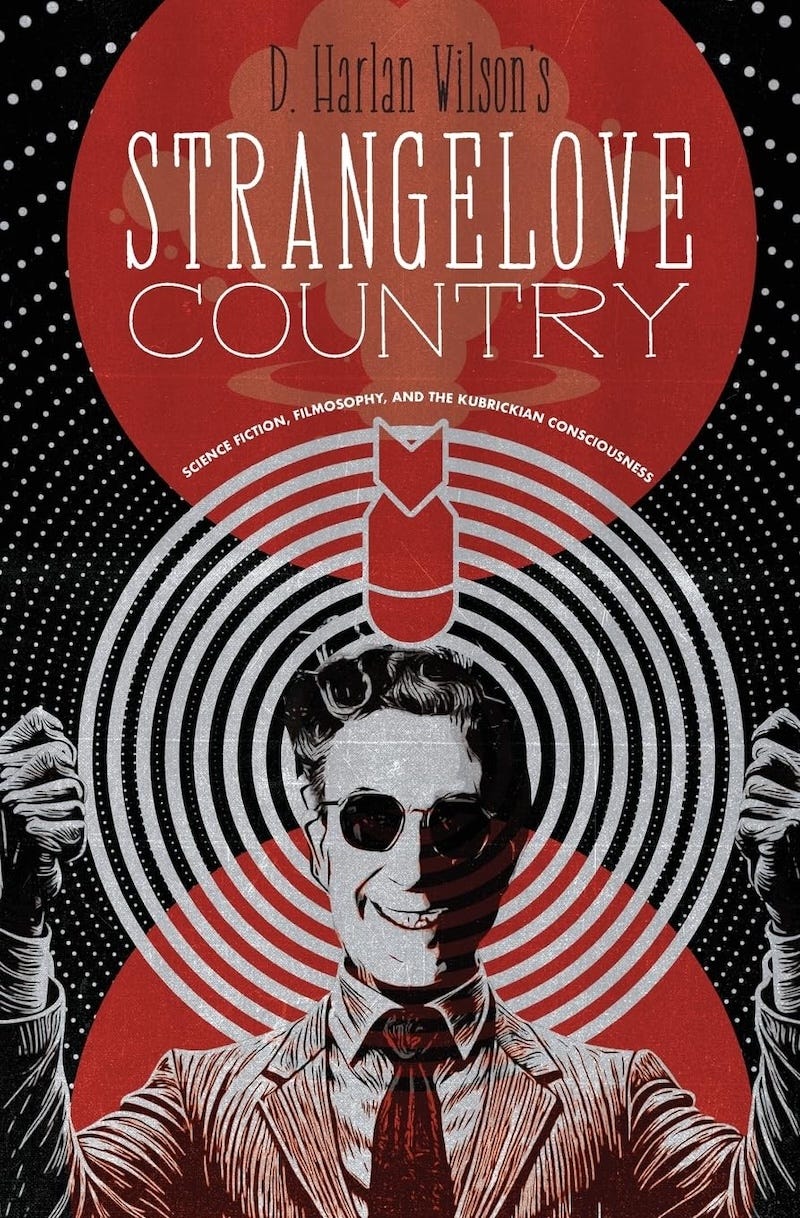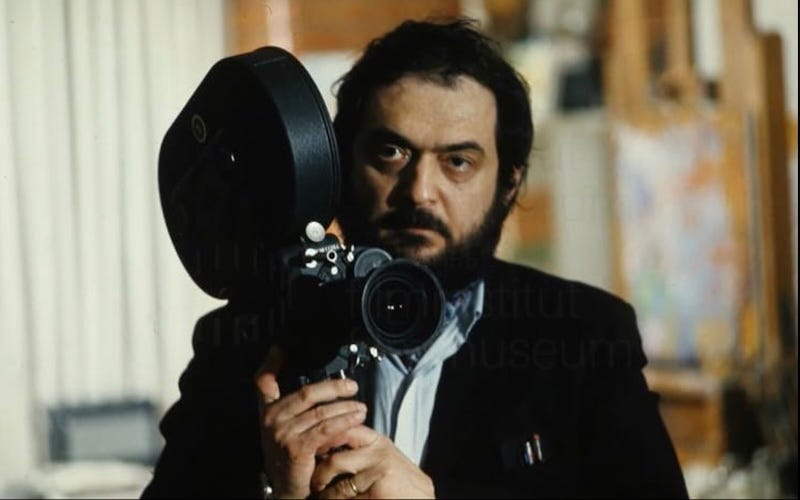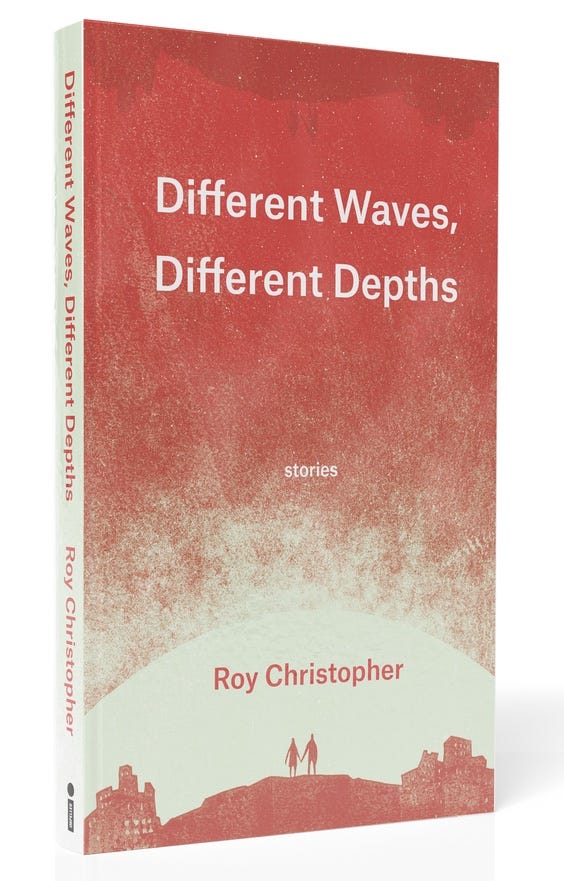A Clockwork Kubrick
Lessons from the master filmmaker
My mom, a lifelong artist and crafter, chronically has unfinished projects in various places around her house: a painting on an easel, a pattern pinned to some odd-shaped fabric, quilt squares pieced but apart, a half-repainted hobby horse. Once she can visualize the finished product, she all but loses interest in finishing it. I can relate to that feeling with my writing. I often approach with a question I want to answer or a curiosity that hasn’t found its end. Once I have an answer, my interest wanes.
Master filmmaker Stanley Kubrick once said, “You start something because you are interested in it, but you actually do it to find out about it.”1 Once you find out about it, there’s usually still work to do. Creation is its own reward, but you could discover the best thing in a category or a new category altogether. If no one knows, it won’t matter. Follow through and spread the word or you’re depriving the world of your work.2 Sometimes we don’t even know what we’ve created until we share it. Kubrick added at another time, “The truth of a thing is in the feel of it, not the think of it.”
Screenwriter Joseph Mankiewicz used to say that a well-written script had already been directed. That is, if it’s put on the page properly, there isn’t much for actors or directors to improve upon. According his Eyes Wide Shut cowriter Frederic Raphael, that’s not the kind of script Kubrick ever wanted. And actor Malcolm McDowell, who played Alex the droog in Kubrick’s A Clockwork Orange (1971), said that Kubrick never knew what he wanted, but he knew what he didn’t.
“To restrain man is not to redeem him.” — Stanley Kubrick
He knew it when he saw it though. I am fond of saying that as long as one keeps their options open, options is all one will have. It’s okay to let them breathe though. Raphael wrote of Kubrick, “Kubrick was not indecisive; he was postponing a decision, which is by no means the same thing.”3 Postponing a decision can be action in itself, but a decision must be made. As the song goes, “if you choose not to decide, you still have made a choice.”4

In his book, Strangelove Country: Science Fiction, Filmosophy, and the Kubrickian Consciousness (Stalking Horse Press, 2025), D. Harlan Wilson deploys several critical constructs in order to investigate Kubrick’s forays into science fiction. Never a fan of the genre, Kubrick nonetheless made four films that are either squarely science fiction or more sci-fi than they are anything else: Dr. Strangelove (1964), 2001: A Space Odyssey (1968), A Clockwork Orange (1971), and the posthumous A.I. Artificial Intelligence (2001). At least one of them—2001—outright redefined the genre, which was kid’s stuff prior to his sprawling opus.
“In all things mysterious—never explain.” — H.P. Lovecraft
And redefining science fiction is more and more difficult since, given the increasingly sci-fi reality we live in. Wilson writes,
Our media encourages us to view ourselves as characters to be viewed by other characters in a filmic realm whose social networks remake the self, identity, reality, and community. A manifestation of weaponized desire, cinematic thinking allows us to exist in our own highly mediatized diegesis.
We’ve been living as if—as if there’s an audience watching—for so long now that it’s difficult to imagine otherwise. Try it though. Post less. Save more for yourself. As Raphael wrote of Kubrick, “He is morbidly afraid of giving away his secrets, the best of which may be that he has none.” You don’t have to have a secret to act like you do. That’s a secret unto itself. Mystery loves company.
Different Waves, Different Depths
I tried my pen at some science fiction myself. Different Waves, Different Depths (Impeller Press) is my collection of nine stories, varying in style from the literarily weird to the science fiction and in length from the flash to the novella. There are time loops and time travel, reality television and big data, consultants who can make anyone a winner, a newspaper that’s just gone online-only, a band that never existed but is all too real, mistaken identities, roadtrips, drugs, guns, murder, and a love story or three. Check it out!
Taking a Break
In the spirit of that last bit about Kubrick, I’m taking a break from social media for the month of August, and that includes this newsletter. I’m not mad or anything, I just want to get off the internet treadmill for a bit. I’ll still be available via email (would that we could ditch email for a month!), and I’ll be back on here in September. Enjoy your selves.
And as always, thank you for reading,
-royc.
P.S. Preorder The Medium Picture! Thank you!
http://roychristopher.com
Quoted in Alison Castle (ed.), The Stanley Kubrick Archives, Cologne, Germany: Taschen, 2008.
I stole this last sentiment from my friend Howard Bloom.
Quoted in Filippo Ulivieri, Cracking the Kube: Solving the Mysteries of Stanley Kubrick Through Archival Research, self-published, 2024.
Rush, “Free Will” on Permanent Waves [LP], New York: Mercury Records.



